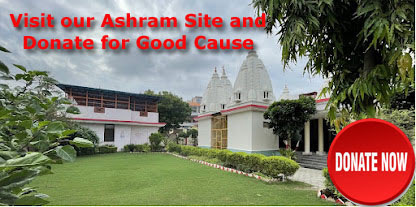The sun is said to have Inderpuri in its eastern part, Yampuri in the south, Brahmpuri in the west and kuberpuri in the north. The sun rises in the east. It comes to Yampuri at noon and then if proceeds to Brahmpuri (The western part) in the evening where it sets. When starting from Barnpuri it reaches kuberpuri (the northern part) not before midnight. The rising and setting sport of the sun is always going on. It moves around Sumeru Parbat and Dhurvalok right from east direction. The center of Dhurva lies in the middle of Sumeru Parbat. Any planet sets in while it is facing the sun. Planets situated in the western part of the sun are known as Uday Grah. Starting from the eastern part Inderpuri when the sun reaches the southern part Yampuri it is noon or the time of 15 gharis. The sun covers a distance of 2,25,00,000 Yojan within these 15 gharis.
This motion of the sun takes place in a similar manner all
around. Thus, the scriptures have recorded 9,00,00,000 miles in the distance
covered by the sun in one day and night, It’s width is 36,00,000 Yajan. Althagh
the ancient sages have enumerated twelve suns they are called so with reference
to the raashis like Aries, Taurus and Gemini. The sun has in its annual motion
one direction and two phases, namely Uttarain and Dakshinain; six seasons
shishur (winter), Vasant (spring), grishm (summer), Varsha (raining), Shrad
(autumn), Hemant (pre winter); twelve months; 360 days and 24 pakshas or
phases. The entire calculation is based on the sun’s motion. There are two
pakshas or phases in one month. They are shukl or bright phase and Kishn or
dark phase. Duration of one day and own night comprises 60 gharis consisting of
30 mahurats. Two gharis make one mahurat.
The sun remains in the northern made from makar rashi to
mithun raashi while it remains in the southern mode from Kark to dhanu raashi.
When the sun assumes the northern mode, prompted by wind it takes to slow mode. Sumeru mountain is the
abode of gods. In astrology, it is called uttarayan dhuru which is sun’s route.
Three paths of the seen are said to exist on this mountain. The duration of the day
increases when the sunlight passes through the northern mode at a high
altitude. When the sunlight passes at a low attitude duration of day decreases
and night starts to increase due to being veiled by other planets.
This route of the sun is also known as Biswat Sangya. Here
the middle motion of the seen occurs when both day and night become equal. The
sun moves around Sumeru Parbat and dhurva. However, from makar raashi to mithun
raashi the sun remains in the northern mode while from kark rashi to Sankrant
of dhurva raashi it remains in the
southern mode. In the former, day becomes longer and night shorter while
reverse is the case in the later. Starting from the sun of makar raashi two
raashis together make one ritu or season. However, maker- Kumbh Rashi sun
brings shishur ritu; meen-mesh Rashi sun brings Summer; kark-singh raashi sun
brings rainy reason; kanya-Tula raashi
sun brings winter and Vrishak Dhanu raashi sun brings autumn.
The sun also called as Maartand spreads light both on the
earth and the world of gods all around. Here, the length of middle line is
25,00,00,000 miles. When the sun is in
the Mesh and Tula raashi it has its
biswat made in the medium speed when day and night become equal. It has medium
speed from Brikh to Kanya raashi when days are longer and nights shorter. When
the sun enters the kanya raashi from Virishak raashi it attains fast speed when
days are shorter and nights are longer.
Dr. A. Shanker
www.ShankerStudy.com
www.ShankerAdawal.com



































No comments:
Post a Comment